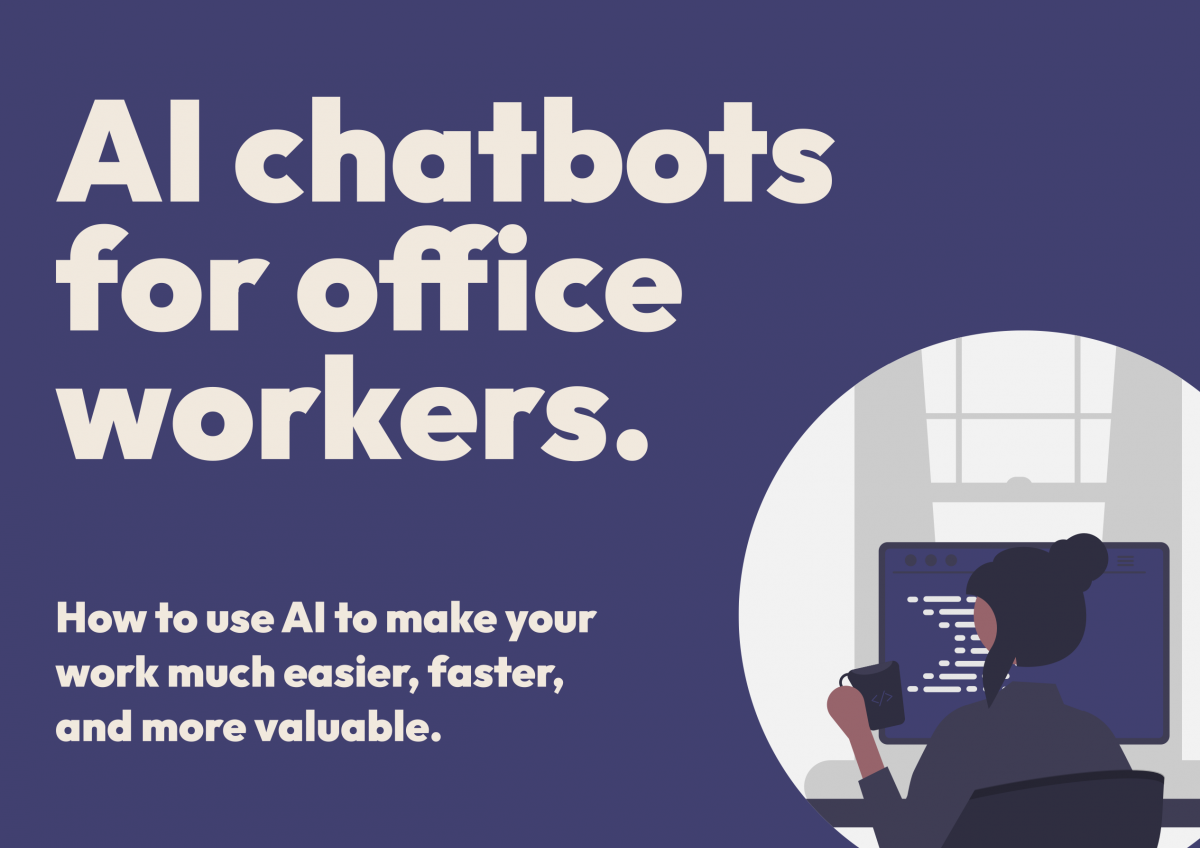On AI and the mutable value of tasks
The world has crossed the AI Rubicon.
Artificial intelligence has been around for a while. We are coming in contact with it every day. From Amazon or Netflix recommendation engines, to Tesla's autopilot. It’s doing its magic in the background.
But in late 2022, what felt like science fiction AI entered the stage.
Anyone with a computer can now interact with an artificial intelligence in the form of a chat. You can carry a theoretically infinite conversation with it, similar to one you’d have with a friend. Sure, the AI sometimes hallucinates and gives you inaccurate answers with a baffling certainty. However, most of the times the quality is high.
High enough to disrupt the way work is done.
In particular, the work that happens behind a computer, in almost any shape or form. And if you’re not at least considering it, you will fall behind.
There is a quote that has gained some popularity recently:
AI won’t steal your job; someone who knows how to use AI will.
Think about it. When a new technology provides sufficient efficiency gain for a business, it won’t take long before using this tool becomes the norm.
And then someone who uses AI might steal your job.
Skeptical?
Let me explain further.
Any given job is made of a set of tasks.
And each of these tasks holds a certain value.
The trick is that this value isn’t immutable; it changes over time.
If a high-value task A, requires low-value tasks B and C, then tasks B and C are still considered as relatively important.
But what happens when technology, in our case AI, enables the person to slash the time B and C take by something as drastic as 70 or 80%?
Companies want to maximize the time employees spend on high-value tasks. One lever to do this, is to reduce the time spent on tasks of lower value.
Take the example of first drafts, something AI excels at. Be it for an email, a report, a presentation, or an addendum to a contract.
Until we had a better way to do it, it was OK to spend a lot of time and energy on it. It was also indispensable, making it an A type of task. Not anymore; its value has changed.
If it’s possible to reduce the time spent on low-value tasks and you can’t do it, they will find someone that can.
Fortunately, learning how to take advantage of AI chatbots is easy.
You need to educate yourself on the topic, and learn by doing. Create an account on one of the big AI chatbot platforms such as OpenAI’s ChatGPT or Google’s Bard. Then find a practical resource to teach you the basics.
Once you witness the new way of working, there’s no turning back.
Get my practical guide on the topic:
